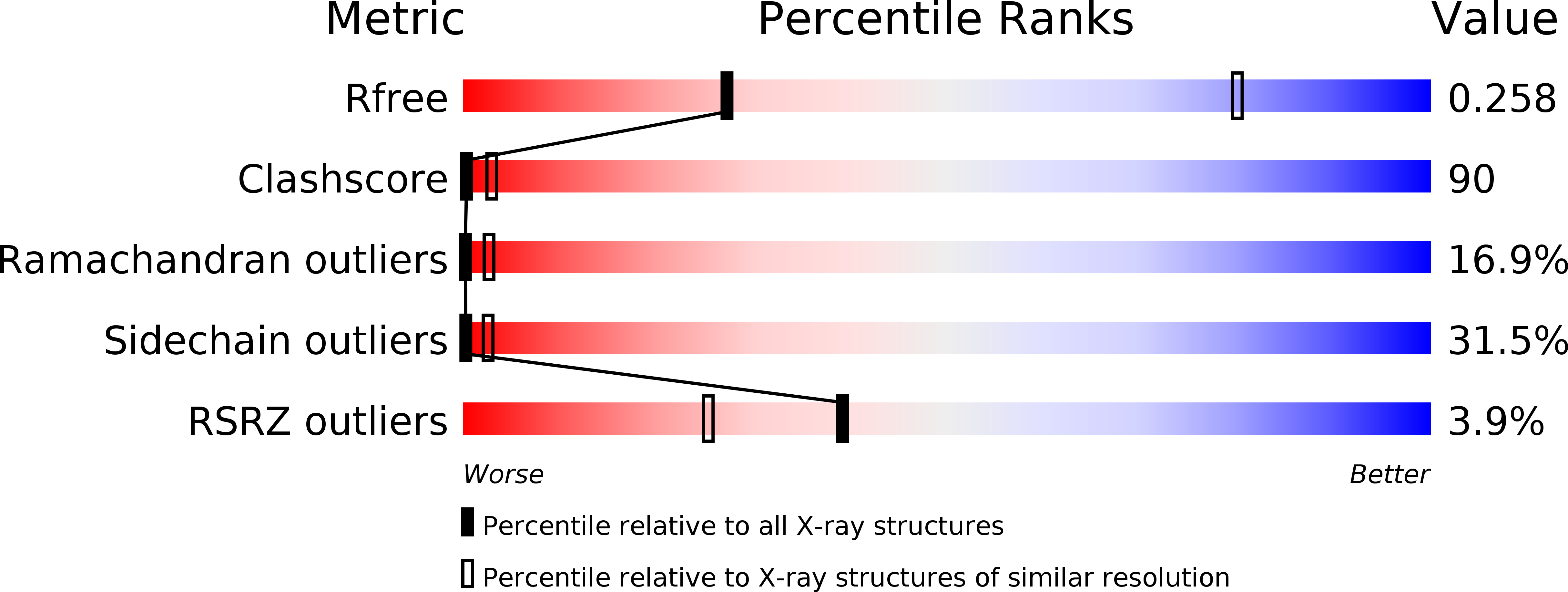Structure of the Cytochrome b(6)f Complex: Quinone Analogue Inhibitors as Ligands of Heme c(n)
Yamashita, E., Zhang, H., Cramer, W.A.(2007) J Mol Biol 370: 39-52
- PubMed: 17498743
- DOI: https://doi.org/10.1016/j.jmb.2007.04.011
- Primary Citation of Related Structures:
2E74, 2E75, 2E76 - PubMed Abstract:
A native structure of the cytochrome b(6)f complex with improved resolution was obtained from crystals of the complex grown in the presence of divalent cadmium. Two Cd(2+) binding sites with different occupancy were determined: (i) a higher affinity site, Cd1, which bridges His143 of cytochrome f and the acidic residue, Glu75, of cyt b(6); in addition, Cd1 is coordinated by 1-2 H(2)O or 1-2 Cl(-); (ii) a second site, Cd2, of lower affinity for which three identified ligands are Asp58 (subunit IV), Glu3 (PetG subunit) and Glu4 (PetM subunit). Binding sites of quinone analogue inhibitors were sought to map the pathway of transfer of the lipophilic quinone across the b(6)f complex and to define the function of the novel heme c(n). Two sites were found for the chromone ring of the tridecyl-stigmatellin (TDS) quinone analogue inhibitor, one near the p-side [2Fe-2S] cluster. A second TDS site was found on the n-side of the complex facing the quinone exchange cavity as an axial ligand of heme c(n). A similar binding site proximal to heme c(n) was found for the n-side inhibitor, NQNO. Binding of these inhibitors required their addition to the complex before lipid used to facilitate crystallization. The similar binding of NQNO and TDS as axial ligands to heme c(n) implies that this heme utilizes plastoquinone as a natural ligand, thus defining an electron transfer complex consisting of hemes b(n), c(n), and PQ, and the pathway of n-side reduction of the PQ pool. The NQNO binding site explains several effects associated with its inhibitory action: the negative shift in heme c(n) midpoint potential, the increased amplitude of light-induced heme b(n) reduction, and an altered EPR spectrum attributed to interaction between hemes c(n) and b(n). A decreased extent of heme c(n) reduction by reduced ferredoxin in the presence of NQNO allows observation of the heme c(n) Soret band in a chemical difference spectrum.
Organizational Affiliation:
Department of Biological Sciences, Purdue University, 915 West State St., West Lafayette, IN 47907, USA.






























